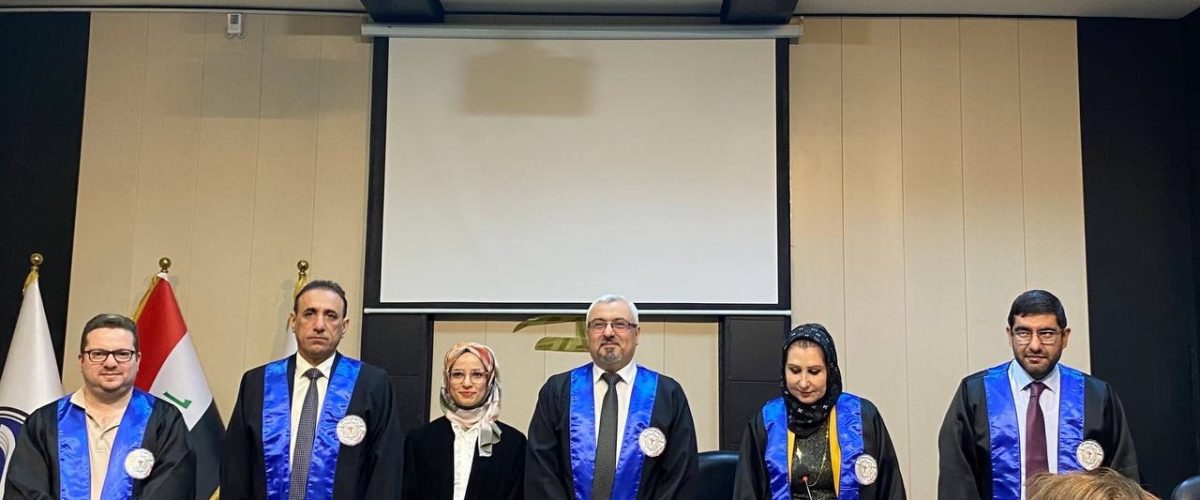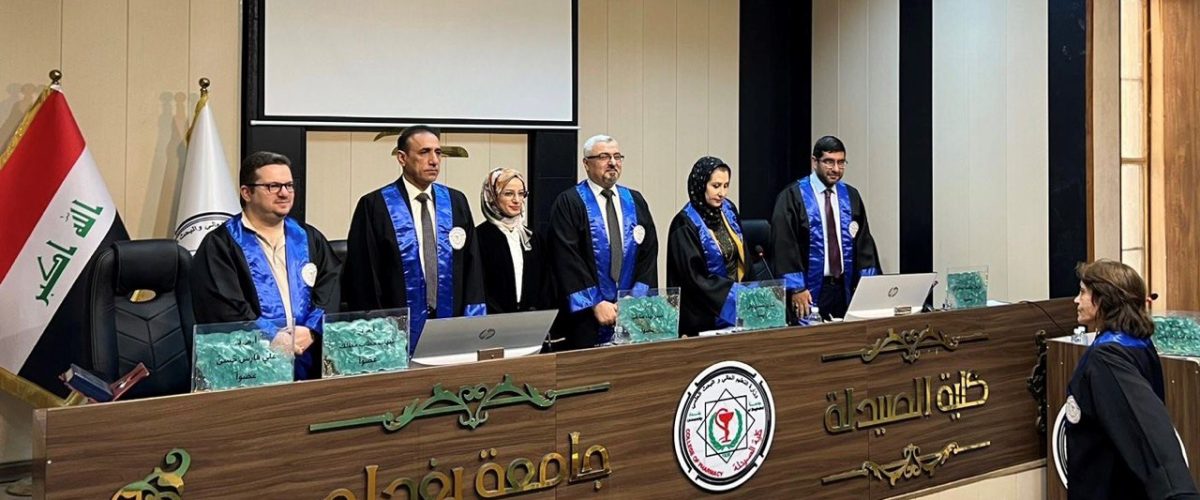The Faculty of Pharmacy discussed the PhD dissertation entitled “Effect of Cafestol or Dimethyl Fumarate on Doxorubicin-Induced Cardiotoxicity and Genotoxicity in Rats” by Sara Ameen Nafeer and the supervisor, Professor Dr. Nada Naji Al-Shawi in the Pharmacology and Toxicology Department. The study aimed to evaluate Cafestol and Dimethyl Fumarate cardio-protective and geno-protective effects against Doxorubicin-induced cardiotoxicity and genotoxicity in rats. Both males and females albino rats were treated with Cafestol or Dimethyl fumarate for 14 days orally alone or prior DOX IP-injection as a single dose on day 14 to induce toxicity. For genotoxicity, the bone marrow was harvested 24 hours after DOX injection to assess structural chromosomal aberration, micronucleus, and comet assays, while for cardiotoxicity, the serum was obtained for biochemical analysis. The heart tissue was excised and processed to examine tissue injury, apoptotic, oxidative stress, and proinflammatory parameters. The results showed that Cafestol or Dimethyl fumarate significantly reduced the DNA in the tail, micronucleus appearance, and the total number of chromosomal aberrations and improved the mitotic index. In addition, they significantly inhibited cardiac injury and oxidative stress, enhanced Nrf2 and HO-1 gene and protein expression, downregulated Keap1 gene expression, significantly inhibited cardiac apoptosis, and reduced inflammatory mediators TNF-a and IL-1b levels. The study concluded that Cafestol or Dimethyl fumarate ameliorated both genotoxic and cardiotoxic effects induced by doxorubicin through the inhibition of DNA damage, oxidative stress, apoptosis, and inflammatory responses via the activation of the Nrf2 pathway. Thus, they may serve as a potential adjuvant in chemotherapy to alleviate DOX-induced toxicities.




